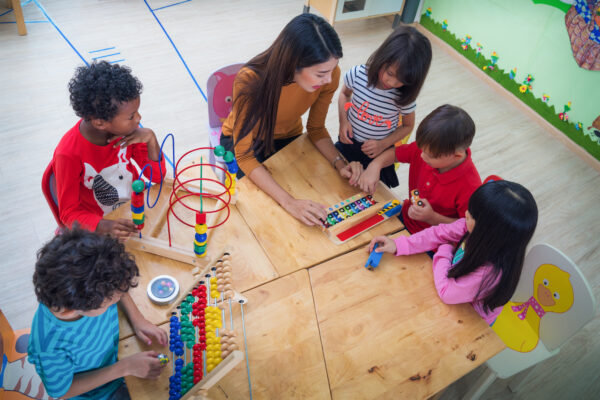 You’ve spent the last several weeks preparing your little one for preschool. But while he’s ready for his first adventures as a school kid, are you ready for this change?
You’ve spent the last several weeks preparing your little one for preschool. But while he’s ready for his first adventures as a school kid, are you ready for this change?
Preschoolers aren’t the only ones who suffer from separation anxiety. For many parents of preschoolers, it’s the first time they are letting their child out of their sight and struggle with the uncertainty of this change.
“It’s perfectly natural for parents to feel sad and have worries when their child goes to preschool,” said Natalie Jedacek, MD, a pediatrician at Akron Children’s Pediatrics, Medina. “Sometimes parents feel the separation anxiety more so than the preschooler because school is full of fun and playtime.”
So, how can you manage your own worries, while supporting your preschooler as he explores a whole new world without you? Dr. Jedacek offers 5 strategies for a smoother transition for the both of you.
Plan ahead to ease worries
Help make the first day go smoother by practicing being apart from your child beforehand. You don’t want the first day to be the first time you’ve been separated from each other. Ask a grandparent to watch your child or schedule a short play date, preferably with another family attending the same preschool. That way, your child will have a familiar face and you will have support from another parent going through a similar situation.
In addition, get organized the night before and have a good night’s rest. If you’re grumpy or rushing through the morning, it can worsen anxiety and make saying goodbye even harder.
Meet the teacher
It’s easier to relax when you know the person well with whom you’re leaving your child. Before the first day, schedule a meeting with the teacher and tour of the classroom, if possible. During pickup, chat about your child’s day and stay in touch over email throughout the year.
“You’ve done your research and chosen the best preschool for your child, so trust the preschool and teacher that they’re going to do what’s best for the children,” added Dr. Jedacek. “As long as you have confidence in the school and teacher, you can have faith your child will thrive and your worries will decline.”

Once you hear about all the fun things your child got to do at school, knowing he’s having a great time will ease your anxiety.
Make goodbyes quick transitions
When it’s time to say goodbye, make it a quick transition. Otherwise, it makes it worse for both of you by dragging out the anxiety. Even if your goodbye includes 5 kisses, extra hugs and a high five, once the ritual is over, it’s over.
“The biggest mistake parents make is going back again after they’ve already said goodbye,” said Dr. Jedacek. “Once you go back, you have to start the goodbye ritual over again and it drags out the goodbye and anxiety. Once you say goodbye, stick to your plan and leave.”
Manage your feelings, privately
If you’re struggling with the change, talk to your partner or good friend about your feelings and ask for support. It’s also helpful to connect with other parents in similar situations.
Just be sure you don’t express your concerns and worries in front of your child. Kids can pick up on your anxiety and make their own worries worse.
Refocus your energy
Instead of focusing on the negative, think about the positive: extra time for you! Make a list of the things you can’t wait to do with your time apart. If you have another child at home, use this time to focus on her and enroll in a parent/child class, for example. If you don’t have other kids at home, use this time to lunch with a friend, exercise or tackle that big project you’ve been putting off.
When your child returns home, discuss what you both did during your time away. When you hear about all the fun things your child got to do at school, knowing he’s having a great time will ease your anxiety.
“It’s rare for separation anxiety to persist after a routine has been set that first week,” said Dr. Jedacek. “But, if you find you or your preschooler are still not adjusting well, talk to a pediatrician. Your pediatrician has supported many families in similar situations and can help put together a plan of support for both of you.”
You can schedule a visit with one of our pediatricians in MyChart or by calling our appointment line at 330-543-2778. Telehealth appointments are available.










